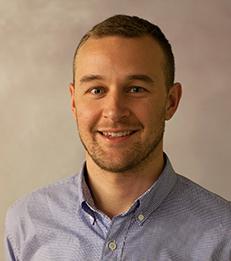Opinion
Don’t Fear Driverless Cars
—


Driverless cars could improve the mobility, productivity, and energy efficiency of America’s metropolitan areas, and cities should embrace them with cautious optimism.
By Brandon Fuller
Driverless cars may soon be coming to America’s cities, and some transit enthusiasts wish they wouldn’t—particularly those who view any cars, driverless or otherwise, as a problem. Their concerns are misplaced, however. Driverless cars could improve the mobility, productivity, and energy efficiency of America’s metropolitan areas, and cities should embrace them with cautious optimism.
When it comes to urban mobility, both private cars and public transit have their weaknesses. Public transit can move large numbers of people into and around dense city centers. As many of America’s city centers grow again after an era of population decline, the demand for public transit will only increase. But most metropolitan trips in the United States take place outside dense city centers. My colleague Alain Bertaud points out that in the New York metropolitan area, nearly three-quarters of trips take place between locations outside Manhattan. Such “suburb-to-suburb” trips pose a problem for public transit, which works best for trips along fixed routes. Outside of urban centers, people often find public transit inconvenient, thanks to relatively infrequent service, longer trips, and lots of transfers. Transit ridership in less-populated areas tends to plummet after rush hour, often leading to higher energy use per passenger mile than the typical private car.
So, cars won’t disappear any time soon, though they have serious problems of their own. Currently, drivers have weak incentives to curb fuel consumption. Drivers park private cars, often free of charge, on public streets, taking up valuable space. Private cars’ “land consumption” while in motion is even greater. A parked car consumes about 150 square feet of street space; a car moving at close to 20 miles per hour occupies nearly 700 square feet.
Read full article as published in City Journal
___
Brandon Fuller is a Research Scholar and Deputy Director of the Urbanization Project.
When it comes to urban mobility, both private cars and public transit have their weaknesses. Public transit can move large numbers of people into and around dense city centers. As many of America’s city centers grow again after an era of population decline, the demand for public transit will only increase. But most metropolitan trips in the United States take place outside dense city centers. My colleague Alain Bertaud points out that in the New York metropolitan area, nearly three-quarters of trips take place between locations outside Manhattan. Such “suburb-to-suburb” trips pose a problem for public transit, which works best for trips along fixed routes. Outside of urban centers, people often find public transit inconvenient, thanks to relatively infrequent service, longer trips, and lots of transfers. Transit ridership in less-populated areas tends to plummet after rush hour, often leading to higher energy use per passenger mile than the typical private car.
So, cars won’t disappear any time soon, though they have serious problems of their own. Currently, drivers have weak incentives to curb fuel consumption. Drivers park private cars, often free of charge, on public streets, taking up valuable space. Private cars’ “land consumption” while in motion is even greater. A parked car consumes about 150 square feet of street space; a car moving at close to 20 miles per hour occupies nearly 700 square feet.
Read full article as published in City Journal
___
Brandon Fuller is a Research Scholar and Deputy Director of the Urbanization Project.
